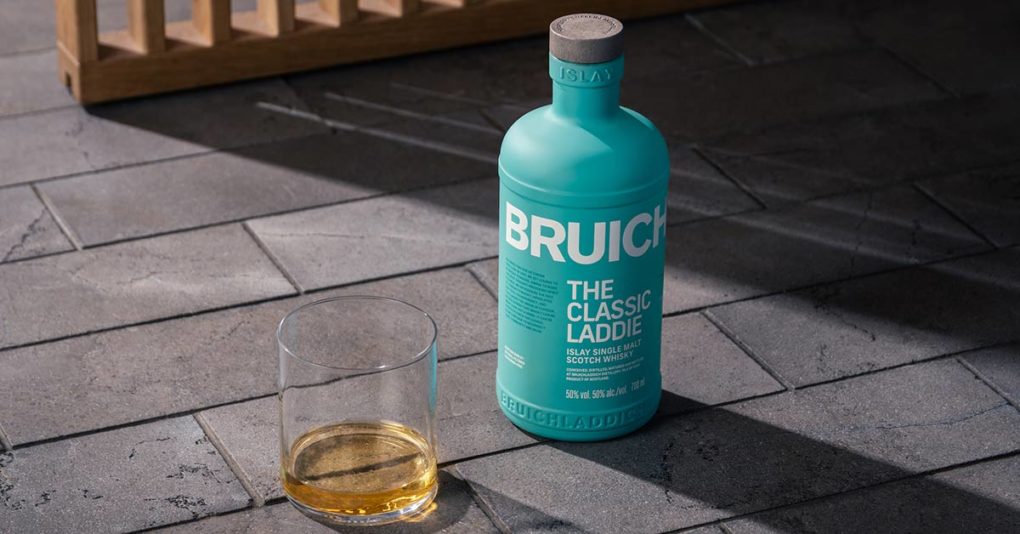
The new bottle, a brainchild of creative partners Thirst, contains 60% recycled glass and is 32% lighter, enabling the distillery to shrink its environmental footprint by transporting more bottles per pallet. The brand’s signature aqua color remains, but now boasts an organic ink coating, and the closure and cork are made from polypropylene, a synthetic resin made from bio-based sources.
The new design is the latest step in Bruichladdich’s push to become “the most values-led distillery in the world.” Originally established in 1881 on the southwestern tip of the Hebridean island of Islay, the distillery was reopened in 2001 by Mark Reynier, Simon Coughlin and then Head Distiller, Jim McEwan with a vision to reconnect whisky with its agricultural roots. It produces three other brands: Scotch whiskeys Port Charlotte and Octomore, as well as The Botanist Gin, the first Islay dry gin. It was acquired by French spirits company Remy Cointreau in 2012 for $92 million.
Bruichladdich has made commitments to its Scottish isle community by sourcing local regenerative grains and keeping operations in the area as much as possible. In 2020, the distillery became one of the few distilleries in the world and the first single malt distillery to become B Corp certified. It is currently undergoing its recertification process which takes place every three years. The company aims to decarbonize the distillation process by 2025.
“How can we justify outer packaging in today’s world?” said Lynne McEwan, global marketing manager in a statement. “It can’t just be about using alternative materials, but asking what is actually necessary. From this viewpoint our ambition was to design out waste and create a bottle that reduces our impact – yet kept all of our standout.”
That “less is more” attitude may represent an interesting challenge to watch in high-end spirits, as peak environmental consumer awareness contrasts the traditional bells and whistles associated with luxury packaging.
The work is the latest phase of the brand’s We also Make Whisky campaign, which aims to champion what the distillery is doing beyond the liquid. That campaign followed the brand’s push to take “No Hidden Measures”, a campaign to raise awareness on factors that affect flavor in single malt Scotch (primarily the quality of ingredients), at the time a more controversial subject also pushed by other industry disruptors like CompassBox’s John Glaser.
Other brands under major spirit portfolios have also made commitments in recent years to a carbon-free future, and are employing or investing in new packaging technology to achieve their sustainability targets. Pernod Ricard acquired a minority stake in ecoSpirits, a technology startup focusing on low carbon, low waste distribution systems for wine and spirits in May. The packaging has also been piloted by Rémy Cointreau and Diageo, and last year the latter announced a collaboration with glass manufacturer Encirc to produce 200 million net zero bottles by 2030.